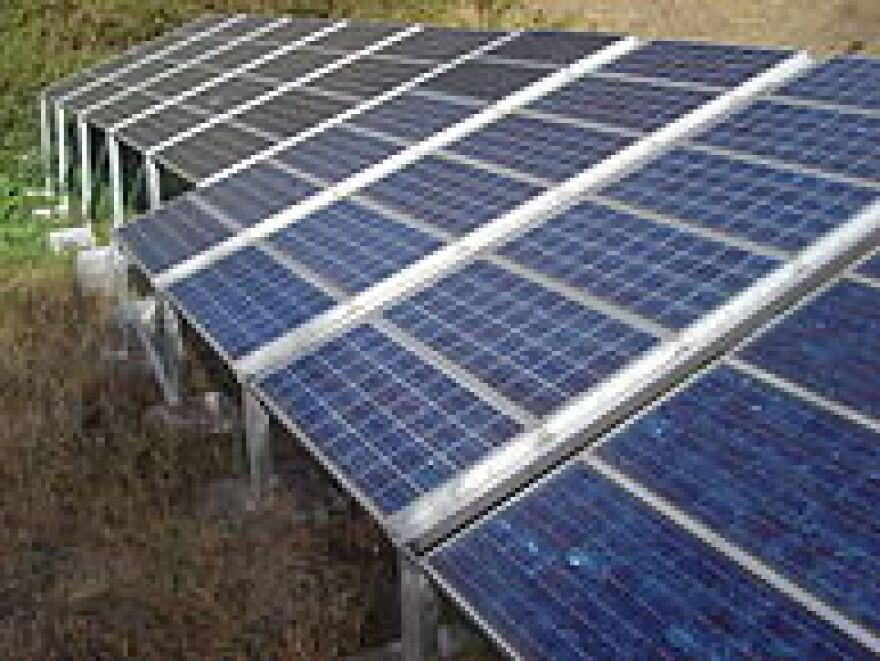Kentucky has more than 14,000 abandoned oil and gas wells left behind by companies that long ago went bankrupt or no longer exist.
Republican Rep. Josh Branscum of Russell Springs says he’s sponsoring a bill to make sure the same thing doesn’t happen with old solar facilities, though opponents say the measure would actually weaken protections for landowners.
Kentucky’s utility regulators have had more than three dozen companies apply to develop solar projects in the last three years. The rules and laws that govern these companies could help decide the future of solar generation in the state. One recent report found it would be cheaper to replace all of Kentucky’s coal generation with solar than to continue operating the aging plants.
House Bill 4 would establish decommissioning and bond requirements to make sure these merchant electric generating facilities clean up their messes when they’re ready for retirement.
“So that this does not fall, the cost of decommissioning does not fall on the backs of our farmers, of our landowners and our fellow Kentuckians,” Branscum said.
The bill passed the House Appropriations and Revenue Committee Tuesday morning.
These merchant electricity generators have at least 10 megawatts of generation capacity, sell their power on wholesale power markets and submit to regulation under the Kentucky Public Service Commission’s siting board -- unlike typical utilities.
That board considers economic impacts, local planning and zoning requirements, if there are any setback requirements (such as where the solar panels could be placed on the property) and a history of environmental compliance. The board has often also required these facilities to have money set aside, called bonds, to manage the costs of decommissioning instead of abandoning equipment or leaving sites environmentally degraded.
Branscum’s bill would codify similar language in state law.
However, the bill’s opponents include Kentucky Resources Council lobbyist Tom FitzGerald, who helped draft rules for the siting board in the early 2000’s. FitzGerald expressed concern that House Bill 4 would weaken existing protections for landowners.
“While I appreciate the desire to codify a decommissioning requirement and a bond requirement, we have to do it in a way that truly protects landowners and empowers counties,” FitzGerald said.
In its current form, FitzGerald said the bill would give counties that lack planning and zoning commissions less authority over what merchant generators leave on site, and over bond amounts.
For counties with planning and zoning, the bill wouldn’t allow local commissions to ask for more cleanup than what is required in state law, FitzGerald said.
Branscum said he and FitzGerald share an intent to protect landowners. Although he thinks the bill does protect landowners, Branscum said he would review FitzGerald’s notes on the bill and make the necessary changes.





